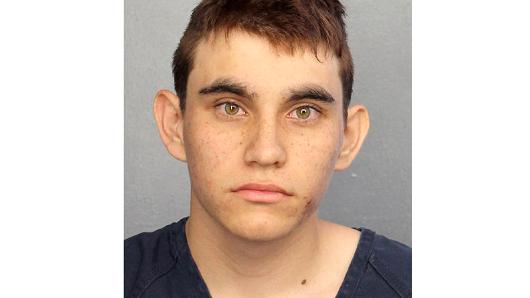Nikolas Cruz, the 19-year-old suspect that killed 17 people in a mass shooting in Parkland, Florida, Wednesday, was armed with an assault rifle and had a gun obsession.
About 18% of adults in America have a mental illness.
Medical experts note the traits of mass killers include depression and a fascination with violence.The Wednesday massacre at Marjory Stoneman Douglas High School in Parkland, Florida, that left 17 people dead and 14 others wounded is the eighteenth school shooting in the last 45 days. Nikolas Cruz, the 19-year-old suspect armed with an assault rifle, was charged with 17 counts of murder in one of the deadliest school shootings in U.S. history.
According to research, those with mental illness — about 18 percent of adults, according to the Kaiser Family Foundation — are no more likely to commit violent acts. But the fact remains that when you look at the modern era of mass shootings — including but not limited to the recent horrific events in Las Vegas and Orlando, Florida — there are certain common mental health factors and motives that define the mind of a mass shooter, according to Alan J. Lipman, Ph.D., J.D., professor at the George Washington Medical Center and founder and director of the Center for the Study of Violence in Washington, D.C.

In most cases, these troubled individuals have an obsession with guns and killing.
Dr. Lipman, who is an expert on the psychology of violence and has been following cases since 1998, said that most mass killers fall into three categories. They can either have one or a combination of these traits.
- A young male between the ages of 16 and 25 who is depressed and has a fascination with violence. Their depression is either undiagnosed or untreated. Cruz received mental health therapy, "but it was brief and there was no follow-up," said Lipman. Had Cruz continued treatment, "it's more than likely this would never have happened.""This person is stimulated by violence, looking to break the norms of society, taking pleasure in the suffering of others," said Lipman. The condition, which was evident in the Las Vegas shooter Stephen Paddock, often runs in families (his father also suffered with it), he said.
Dr. James Knoll is a leading forensic psychiatrist who studies mass murderers. In his book Mass Shootings: Media, Myths, and Realities, he points out this commonality among many mass murderers. He notes that they are usually young males, who meticulously plan and act alone and that their longstanding fascination with weapons and violence send them to carry out their heinous acts in public places, usually during daylight.
On Thursday, President Donald Trump pledged to address mental health and school safety following the latest shooting massacre at an American school.
"We are committed to working with state and local leaders to secure our schools and tackle the difficult issue of mental health," he said.
But depression itself, or any of the other two conditions, does not motivate someone to carry out an overwhelming, vengeful act of violence that destroys innocent lives. There is usually a triggering event. In Cruz's case that event was being expelled from school for disciplinary reasons, said Lipman. (There were also reports that he was shunned by a romantic interest.)
More from Modern Medicine:
Disturbing YouTube content reveals the dark side of tech on young minds
Military veterans defy Jeff Sessions, fight for medical marijuana to kick opioid addiction
A major experience like that in an already-depressed person causes a great deal of anger and rage; a serious break that fuels their viciousness. "This person, who already sees their life as having no value, now feels it's even more worthless, and they look to express their rage in the most violent way possible." Because their own life lacks value, so does the life of others.
A psychotic individual. The National Institute of Mental Health defines psychosis as a condition "where there has been some loss of contact with reality." Along the spectrum of psychosis is schizoid (personality) disorder and schizophrenia. This person may have trouble distinguishing truth from reality; suffer from hallucinations and delusions (false beliefs). "This was the case in the Virginia Tech shooter, who thought people were out to get him," Lipman explained. Seung-Hui Cho shot and killed 32 people and wounded 17 in two separate attacks on the same day in April of 2007. Although people who suffer from psychosis are usually not violent, "there is a small subset of psychotic people who are implicated in shootings. Such was also the case with Jared Loughner, who shot U.S. Representative Gabrielle Giffords and killed and wounded others in Tucson, Arizona in 2011, Lipman says.
A sociopath or psychopath. Known as antisocial personality disorder, this person disregards, or violates, the rights of others, having little to no conscience or regard for societal laws, with no remorse. While they may sometimes appear charming, they're typically manipulative, reckless and aggressive, irresponsible and often antisocial, prone to emotional outbursts and fits of rage.
Hi! I am a robot. I just upvoted you! I found similar content that readers might be interested in:
https://sg.finance.yahoo.com/news/inside-mind-nikolas-cruz-other-203600348.html
Downvoting a post can decrease pending rewards and make it less visible. Common reasons:
Submit
:)
Downvoting a post can decrease pending rewards and make it less visible. Common reasons:
Submit